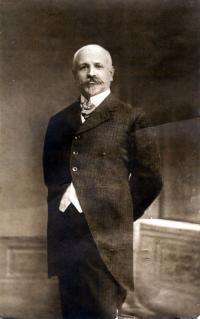Over 30 years of anarchist writing from Ireland listed under hundreds of topics
Francisco Ferrer: Murdered By the State
 Over hundred years ago this year, a huge campaign arose around the world to save the life of Francisco Ferrer. A Catalonian by birth, Ferrer was an active anarchist and well known across Europe and the Americas for his radical views on education. Ferrer’s enemies were not for turning though and the campaigns failed. He shot to death by firing squad on October 13th 1909. Born to Catholic parents outside Barcelona, Ferrer became involved at a young age in anti-royalist activities in Spain. He fled to Paris to escape the Spanish authorities and there became involved with anarchism and the great love of his life: education and learning.
Over hundred years ago this year, a huge campaign arose around the world to save the life of Francisco Ferrer. A Catalonian by birth, Ferrer was an active anarchist and well known across Europe and the Americas for his radical views on education. Ferrer’s enemies were not for turning though and the campaigns failed. He shot to death by firing squad on October 13th 1909. Born to Catholic parents outside Barcelona, Ferrer became involved at a young age in anti-royalist activities in Spain. He fled to Paris to escape the Spanish authorities and there became involved with anarchism and the great love of his life: education and learning.
Ferrer held the view that people were born free with inquiring, independent minds. He believed that children had a thirst for knowledge and that the role of education was to develop and encourage this fundamental quality. At the time in Spain, the Catholic Church had a stranglehold on education. For many there was no other means to learn other than to go to a school run by Catholic priests – sound familiar? Yet what happened to children in these schools? Ferrer witnessed Catholic nuns and priests filling children’s heads with superstitions and nonsensical ideas about ‘miracles’ and the ‘afterlife’. To Ferrer, this practice by the Church served the interest of the status quo. He abhorred the idea that irrational ideas (or ideas that made no sense) should be forced on children and those seeking knowledge.
OFF BY HEART
For many people at the time, the solution to this problem was to involve the State in education. But Ferrer didn’t agree with that idea either. He argued that the State also had a political agenda when it came to education. It was similar to what the Church desired in that the State too wanted to make people docile and regimented. As an example of what he meant, Ferrer pointed to the State’s obsession with exams and teaching by the method of ‘learning off by heart’. Ferrer thought that these practices were the opposite of what teaching and learning should be about. He opposed the idea of exams and believed that inquiry, discussion and egalitarian practice between teachers and students were central to how teaching should be organised.
If Ferrer had confined himself to writing books about education, he might well not have become such a thorn in the authorities’ side. But that was not his style. Returning to Barcelona in the early 1900s he organised the first of his ‘Escuela Moderna’ (Modern School) schools in Barcelona. These schools were non-religious, co-educational and democratic. Today many of the ideas at its core are accepted as being not only correct but central to what education should be about, concepts such as building ‘self-esteem’ and ‘respecting children as individuals’.
A NEW WAY
Ferrer’s new schools in Barcelona survived in the teeth of repression for only a small number of years. But he had already sowed the seeds of a new way of doing things. At the same time he also started a school for teachers that would use these new methods of teaching and he commissioned and published school books that looked at the world in a different way to the way the ruling class of that day wanted.
In those years in Spain the anarchist movement was growing stronger by the year. Their activities were met by repression and Ferrer himself was arrested on numerous occasions for his involvement. In 1909 though, the authorities finally saw their chance and took it. A general strike in Barcelona turned into a bloody uprising that later became known as The Tragic Week. Military law was imposed and Ferrer was arrested. He was quickly charged with treason and found guilty even though no evidence was produced.
Oddly Ferrer’s execution drew a huge amount of attention to what he had been fighting for. Across Spain and around the world many schools were founded which set about following in the example of his first Modern School. Moreover, in time, his views became a beacon of light for educationalists and teachers of many persuasions who wanted to break forever with the idea that schools and teaching should be used to indoctrinate and control children.


